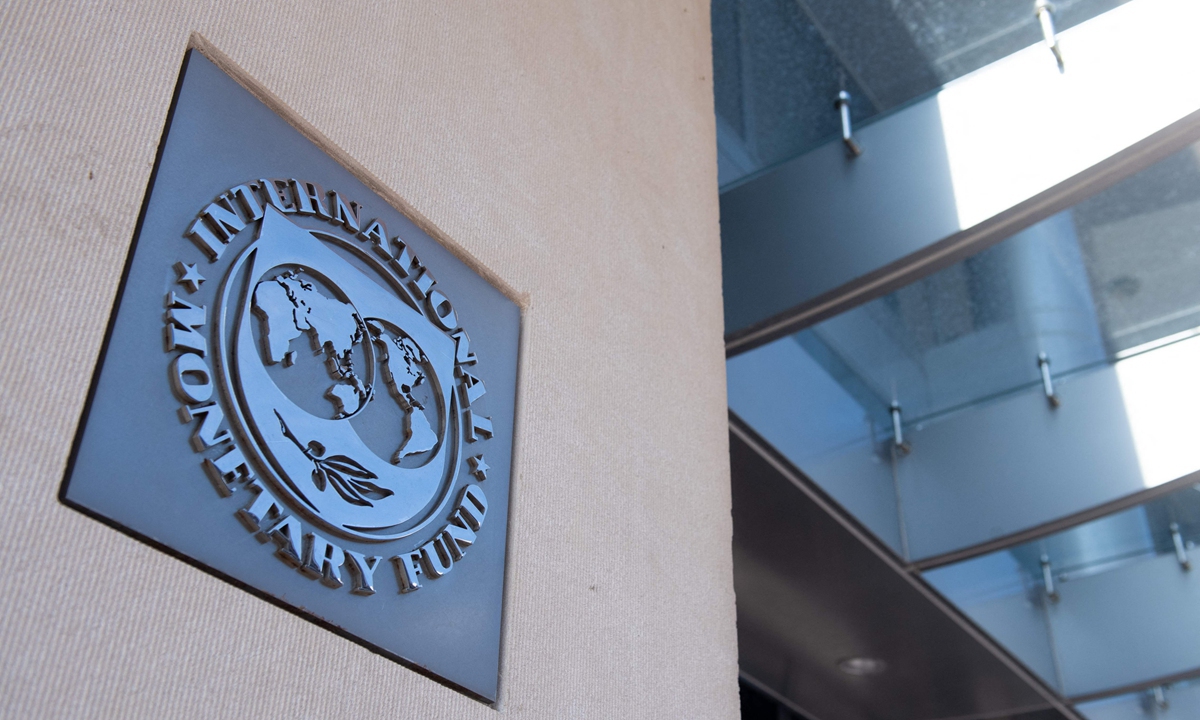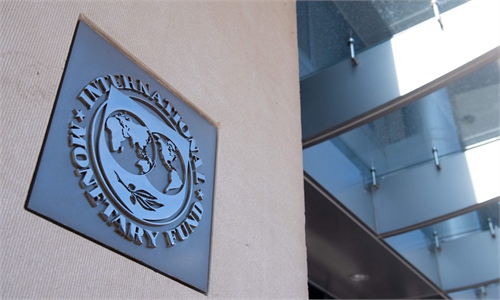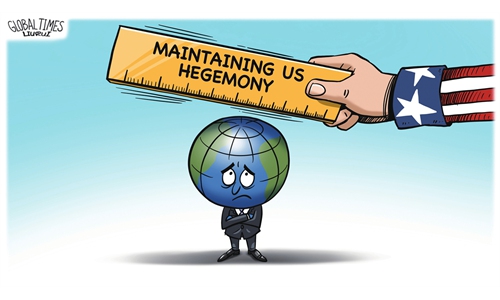
Photo: VCG
The 2023 annual meetings of the IMF and the World Bank started on Monday in Marrakech, Morocco. Given the global economic challenges, one focus at the annual meetings is the potential reform of the IMF.In the face of today's severe economic challenges, the IMF needs to increase funding to boost its ability to respond to crises, but the US has been resisting reforms that may reduce the size of its quota share and veto power in the management of the IMF. The division has never been sharper.
In an interview with the Financial Times published last week, IMF Managing Director Kristalina Georgieva backed reforms that could eventually give China more voting power within the fund, warning of "devastation" if the institution remains without adequate financial resources to aid struggling countries.
Yet, right after Georgieva's remarks, Nancy Lee, a former senior US Treasury development expert, said the US should demand that China support debt restructuring for other countries as a condition of changes to the IMF's shareholding formula, according to a Reuters report.
Apparently, the implication of the "condition" is that China hasn't done enough in debt relief for other countries, so it is "unreasonable" for it to have more voting power in the IMF. This is not the first time that US officials have pointed fingers at China's role in debt relief. But such accusations are unfair and a common approach by politicians in Washington to pass the buck and demean China's efforts regarding debt restructuring.
Many developing countries have encountered debt crises in recent years, and some Western public opinion has taken the opportunity to accuse China, which has become the world's largest sovereign creditor. But multilateral financial institutions and commercial creditors account for more than 80 percent of the sovereign debt of developing countries.
China has always helped developing countries relieve their debt burdens, and it made the biggest contribution in implementing the G20 Debt Service Suspension Initiative. Since 2008, there have been 71 debt restructurings with Chinese creditors for 39 developing countries, according to media reports.
Moreover, the IMF quota assigned to a member country, which determines its contributions to the fund as well as its voting weight within the institution, is meant to reflect a country's relative position within the global economy. It has nothing to do with the debt problem at all.
So the US attempt to confuse the debt problem with IMF reform actually shows that the US has no intention to solve the debt problem and only wants to use it as an excuse to block IMF reforms so as to maintain its hegemony.
But the selfish trick only undermines the IMF's ability to deal with economic challenges. As the developed economies have encountered their own economic difficulties, the IMF now needs more funding from emerging economies, such as China, if it wants to retain its influence. But it doesn't make sense if emerging economies only get increased funding quotas without increased voting power.
Whether China should have a higher quota and bigger voting power in the IMF depends on its contribution to the global economy. Despite its large share of GDP in the world economy, China only has a 6 percent share of voting power in the IMF, less than Japan. The last time the IMF agreed to a change of voting power was in 2010. Obviously, the current distribution of rights in the IMF has lagged far behind the development of the world economy.
The most important responsibility of the IMF and the World Bank is to help emerging economies resist shocks and challenges and overcome bottlenecks in economic and social development. The IMF is not the "IMF of the US." To maintain its vitality and influence, the IMF cannot be a geopolitical tool held hostage by the US, but rather better fulfill its responsibilities in the changeable world economy.
Last but not least, since the US Fed's monetary policy has sent shockwaves through the global markets, intensifying the debt pressure for many countries, the US has more responsibility to help developing countries and engage multilateral financial institutions in being part of the debt restructuring, rather than introducing geopolitical rivalry into these institutions.



